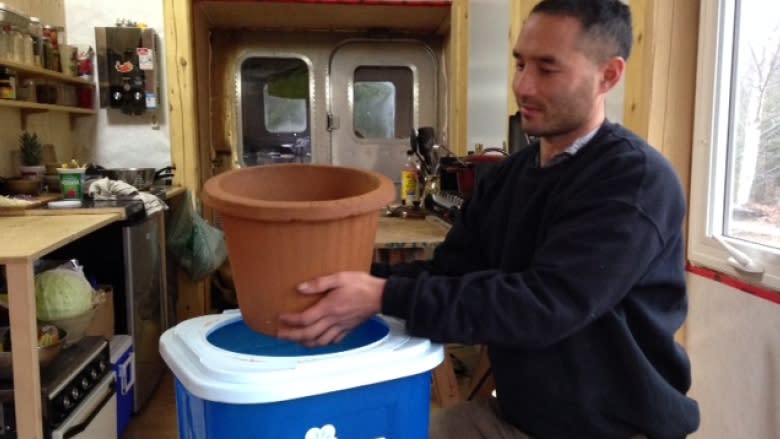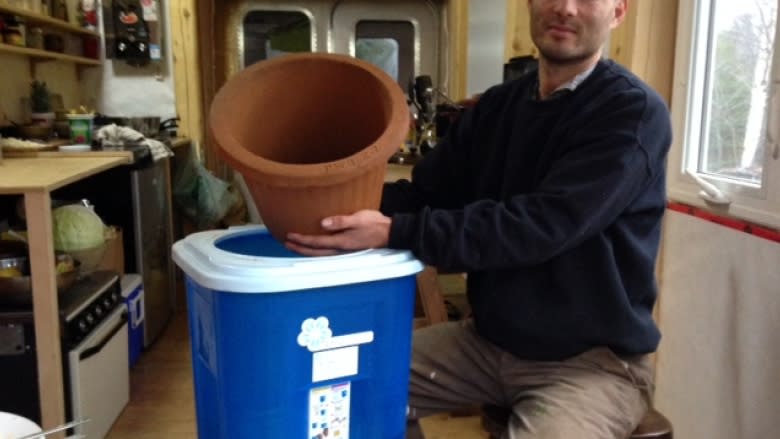Potters Without Borders uses ceramics to battle dirty drinking water
A Meteghan River, N.S., potter is part of an international group that provides simple ceramic water filter technology to countries where water-borne diseases are problems.
Kai Morrill helped found Potters Without Borders in 2006 while living in British Columbia.
He recently moved back to the Acadian shore of Nova Scotia and has also been working in the West African country of Guinea-Bissau.
The water filters, about the size and shape of office water coolers, are simple to produce.
- The filter is made of clay local to the area where the filter is made.
- Clay is mixed with sawdust or rice husks, and graded to a certain particle size. Upon firing, the organic material burns away, leaving a void in the clay body.
- The voids are small enough that bacteria cannot pass through, but a water molecule can.
"Our studies indicate that it is a very effective way for removing water-borne pathogens [and parasites]," Morrill told CBC Radio's Information Morning.
New facility in West Africa
The Guinea-Bissau project began three years ago. Morrill's most recent visit was last spring and he will go again soon.
"I was there to break ground on the new facility and to start actually making filters," he said. "We already had delivered a press for making the filters. We built a kiln, we laid out the floor plan for the factory and we started processing raw materials.
"So I hope when I get there they'll already have about 300 filters formed and dried. They'll fire the filters and we'll begin the quality control process on this trip to find out which ones are acceptable and which ones are not."
Using filters in N.S.
When produced properly, the filters meet World Health Organization standards.
Morrill even uses the filter for water that comes out of the well at his Nova Scotia home.
"Our well is contaminated. When we had it tested, it had very high levels of fecal coliform levels," he said.
"We're in rural Nova Scotia and there are pig and mink farms all over the area. Our dug well is a groundwater well. It is all connected."
Potters Without Borders only goes to countries where they are invited, he emphasized.
The group acts as facilitators to get the factories going, but the community has to demonstrate they want to do this and begin working on it, he said.
The technology could also be useful in Canada — at least in the short term — in native communities where poor water quality is a chronic problem.
Right now the ceramic water filters are used by about one million people in 20 countries around the world.



